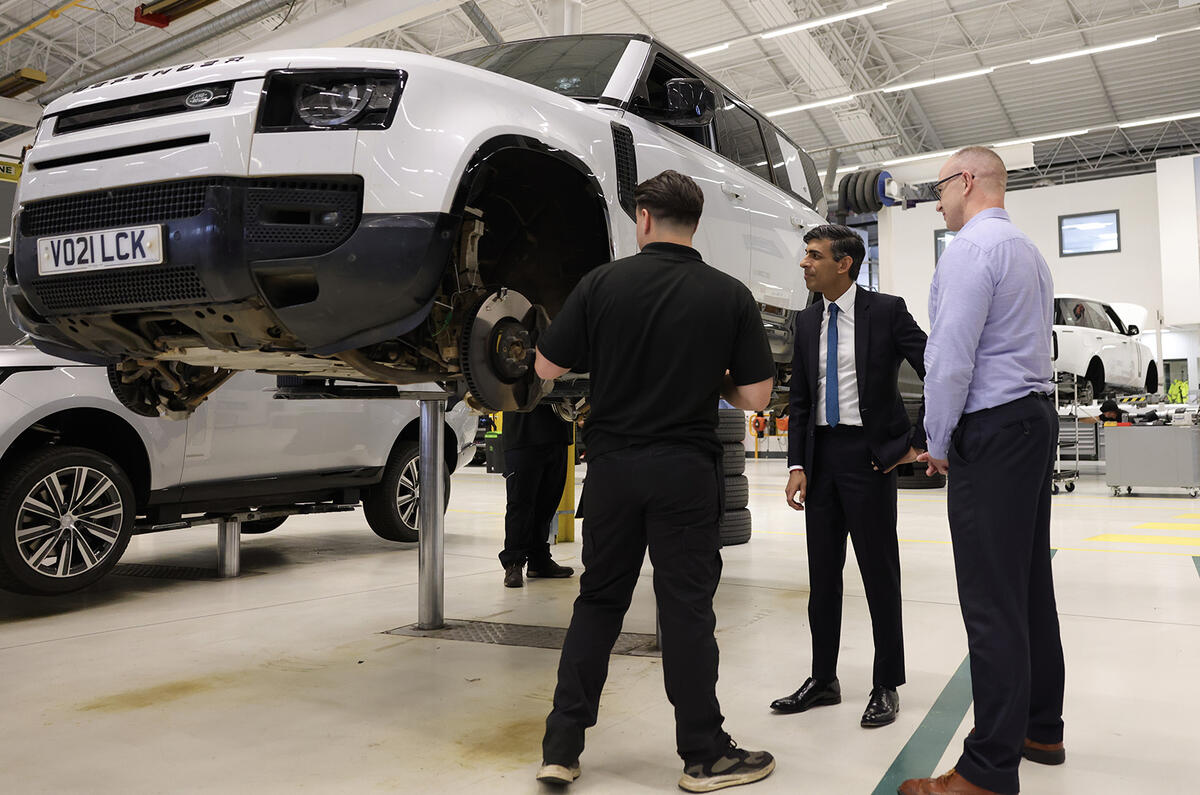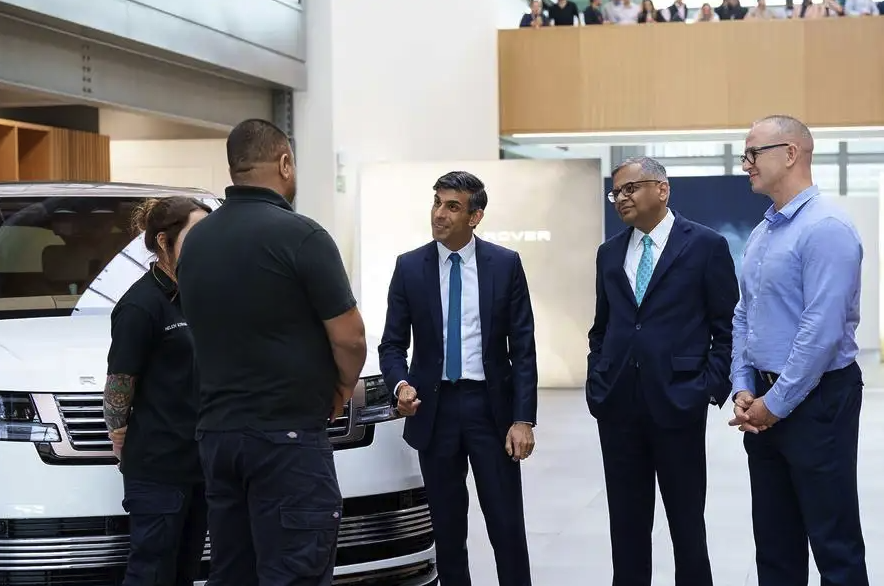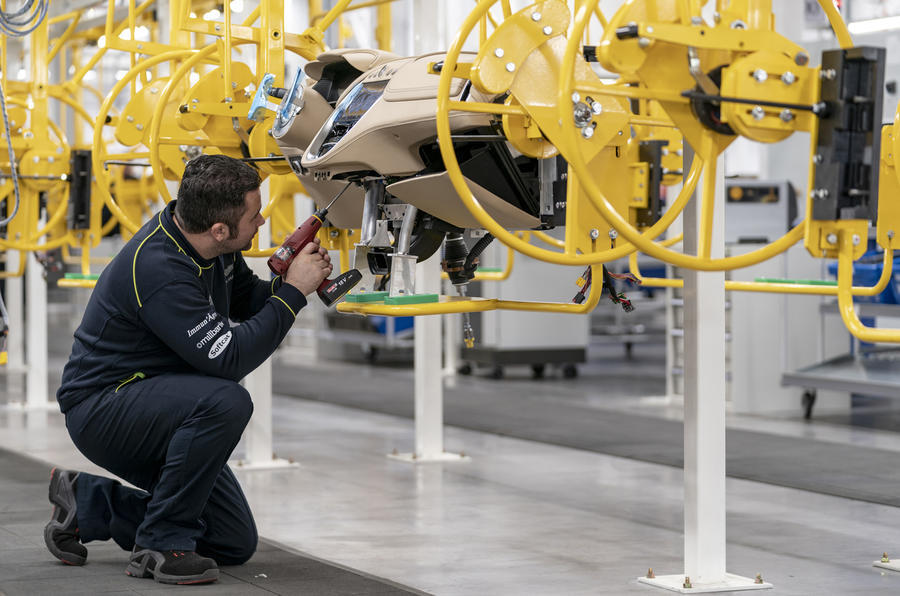
The government will postpone the ban on the sale of new petrol- and diesel-engined cars from 2030 until 2035, prime minister Rishi Sunak has confirmed.
The ban was due to come into force in 2030, although certain hybrid powertrains capable of 'significant zero-emission running' were to be allowed until 2035. But that date has now been pushed back so that all cars can be sold until 2035. It is part of a series of delays to key 'green' policies that Rishi Sunak has announced – although he said that the government is still committed to the UK reaching net zero carbon emissions by 2050.
Opinion: Constant government failings means 2030 ban delay is no surprise
In his statement, Sunak said that "we're working hard to make the UK a world leader" in electric vehicles, citing that "we've already attracted billions of new investment."
He added: "I expect by 2030 the vast majority of cars sold will be electric, because the costs are reducing, the range is improving, the charging infrastructure is growing. I also think, at least for now, it should be you that makes that choice, not the government forcing you to do it. Because the upfront cost is high. We've got further to go to get the charging infrastructure in place.
"So to give us more time to prepare we're going to ease the transition to electric vehicles. You'll still be able to buy a combustion engined vehicle until 2035."
Sunak noted that the 2035 date brings the UK in line with other countries including the European Union and Canada.
The prime minister also vowed that existing petrol- and diesel-engined cars would be allowed to be sold on the second-hand market after 2035 – although since the ban only ever applied to new cars, this would have the case under the previously announced 2030 target.
Speaking more broadly about the government's commitment to its 2050 net zero target, Sunak said that he thought that could be achieved without "burdening" the public with "unrealistic" policies.
He added: "The test should be: do we have the fairest credible path to reach net zero by 2050 in a way that brings people with us? Since I've been prime minister I've examined our [previous] plans and I don't think they meet that test." But he added that he was "unequivocal" that the UK would meet all its international climate target commitments.
It is unclear yet how the delay in the ban will work, and whether it will affect the planned ZEV (zero-emission vehicle) mandate that will require car makers to sell an increasing number of zero-emission cars in the coming years.
Electric car sales have surged in recent years as new models have arrived on the market: they accounted for 20.1 per cent of car sales in the UK last month, with sales rising 72.3 per cent year-on-year. But the majority of those sales were to fleet and business customers, and there have been concerns about softening demand from private buyers put off by higher prices. The UK government currently offers no incentives or subsidies to encourage the purchase of electric cars.
Reaction to the delay
In response, shadow environment secretary Steve Reed said that Labour was committed to keeping the 2030 date for a ban on new petrol diesel cars – although did not specify if it would also allow some hybrids until 2035, as previously.









Join the debate
Add your comment
The SMMT has been pushing for both an extension tand direct subsidies. So you can see why they are unhappy with this delay which in all fairness brings us fully in line with the EU.
Frankly if you are in a company car scheme then you are mad not to select an EV and BIK is a huge tax break. So car makers are receiveing massive tax advantages at the moment because of this - lest we forget that every OEM is currently showing huge if not record profits both in Europe and globally
What they have forgotten is the "ordinary" motorist. If they were already offering normal electric cars at sensible money then this would be a non-story. they are not!!
just look at Stellantis offering an astra from £40k! Ford bleating about this news is a joke- just look to the US market where they now (with only 2 exceptions) offer only SUVs or Trucks
This step, again falls in line with the EU, gives normal motorists the choice they need and OEMs the time to come to market with realistic EVs.
This was all so inevitable but spare me the bleating of the OEMs and the SMMT
Until we know the ZEV mandate rules we dont know anything. According to Autoexpress we will know in a few days (which must mean the government havent decided yet), the Autocar article on the subject being hidden from normal readers.
But, if in 2030 petrol sales can continue, but are limited to 20% of (by then) a much smaller market (the market can only get smaller given how expensive EVs are), and those you can buy are strangled by the corporate CO2 average, this big news is sort of irrelavent. Worse, those of us who want the whole thing unwound are not happy with the government, and at the same time the eco zellots are up in arms too. Seems by sitting on the fence, yet again the government succeed in pleasing no one.
Pathetic how the government makes foolish statements time after time. Firstly the big announcement that they would ban ICE by 2030. Then they announce we are going to reconsider. Now they announce were moving it back 5yrs. Meanwhile the PM says were making the UK a World leader in electric vehicles?? That last statement, quoted above by Autocar, is about as blatant a lie as you can make. The UK is irrelevant as a manufacturing base for EV's, and no amount of blind optimism will change that, he knows it, you know it, the World knows it. Talk about delusional!